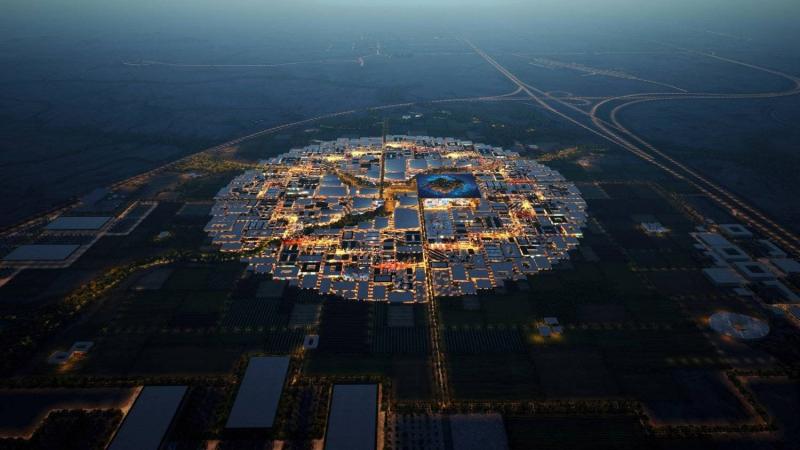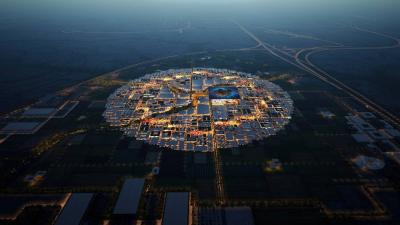The Kingdom of Saudi Arabia has won the bid to host "Expo 2030" after members of the Bureau International des Expositions (BIE) favored the Kingdom. The results of the voting by 182 BIE members on Tuesday showed that Riyadh, Saudi Arabia, will host Expo 2030. Three cities were in the running to host the event: Riyadh, Rome, and Busan. Riyadh secured 119 votes from the 182 BIE members based in Paris, while Busan received 29 votes and Rome obtained 17 votes. Saudi Arabia needed to achieve two-thirds of the votes to win in the first round.
Italian officials expressed disappointment with the outcome. Giampiero Masolo, the head of Italy's bid to host the expo, told reporters, "This large result for Saudi Arabia was not expected to this extent. It’s not about merit, but about how things are handled." He added, "Yesterday it was the football championship; tomorrow it will be the Olympics." Riyadh enlisted football star Cristiano Ronaldo, who plays for Al Nassr in Saudi Arabia, to persuade members in a video shown before the voting. The Saudi capital proposed to host the event between October 2030 and March 2031.
The Kingdom had revealed the main plan for Riyadh Expo 2030 during an official reception organized by the Royal Commission for Riyadh City in Paris on June 19, attended by delegates from 179 member countries of the BIE. The plan aims to create an exceptional global experience in the history of expos, highlighting the significance of Riyadh Expo 2030 and its positive role, embodying the expo's main theme: "Together, we envision the future."
The BIE's 173rd General Assembly meeting will be held, during which the vote will determine the winning country for hosting the International Expo 2030, attended by representatives of the member states. The expo will be located near King Salman International Airport, which is currently under development, allowing visitors to reach the expo location within minutes using the "Riyadh Metro" network covering the city, along with modern road networks connecting to one of the expo's three entrances.
The exhibition will feature an estimated 226 pavilions designed in a globe-like structure, with the equator at its center, visually aligning with the expo's vision, ensuring equal opportunities for all participants, while also reflecting the rich urban design, history, culture, and nature of Riyadh. The design emphasizes the Kingdom's shared commitment with the rest of the world to climate issues and its ambition to envision a future full of potential.
The positioning of the country pavilions will be flexibly arranged according to the longitude of each country, placing countries from the Northern and Southern hemispheres side by side, symbolizing the important role played by the Kingdom in facilitating cooperation among nations. This arrangement aims to ease the visitor's journey, ensuring short distances for movement between pavilions and public squares, as well as designated cultural and innovation facilities and services for food, rest, and relaxation.
Visitors will enjoy strolling through fully shaded corridors designed with architectural heritage inspired by Riyadh's history, as well as a modern green oasis within one of the tributaries of "Wadi al-Suli" running through the expo site, reflecting the Kingdom's and Riyadh's commitment to preserving and sustainably developing nature.
In the core of the main plan for Riyadh Expo 2030, a landmark symbolizing "responsibility for protecting the planet" will be established, resting on 195 pillars representing the number of countries participating in the expo. Surrounding this landmark, there will be three pavilions reflecting the expo's sub-themes: "Prosperity for All," "Climate Action," and "A Better Tomorrow."
Additionally, the expo will feature a participatory change corner, serving as a hub for innovation and creativity throughout the seven years leading up to and following Riyadh Expo 2030, showcasing how the most intelligent minds in scientific, social, and intellectual innovations can collaborate to accelerate changes that will shape our future.
It is noteworthy that the Kingdom aims to position Riyadh Expo 2030 as the most sustainable and impactful expo ever in line with its climate commitments and achieving carbon neutrality, which will have a positive environmental impact on Riyadh. This goal is clearly reflected in the main plan of the expo, which presents concepts related to global sustainability standards, such as urban greening, using treated water, and providing new energy sources. Moreover, the main plan has been designed to enable the reuse of the site after the event concludes, aiming to develop an innovative urban model that ensures sustainability and fosters innovation and creativity in the Kingdom.




